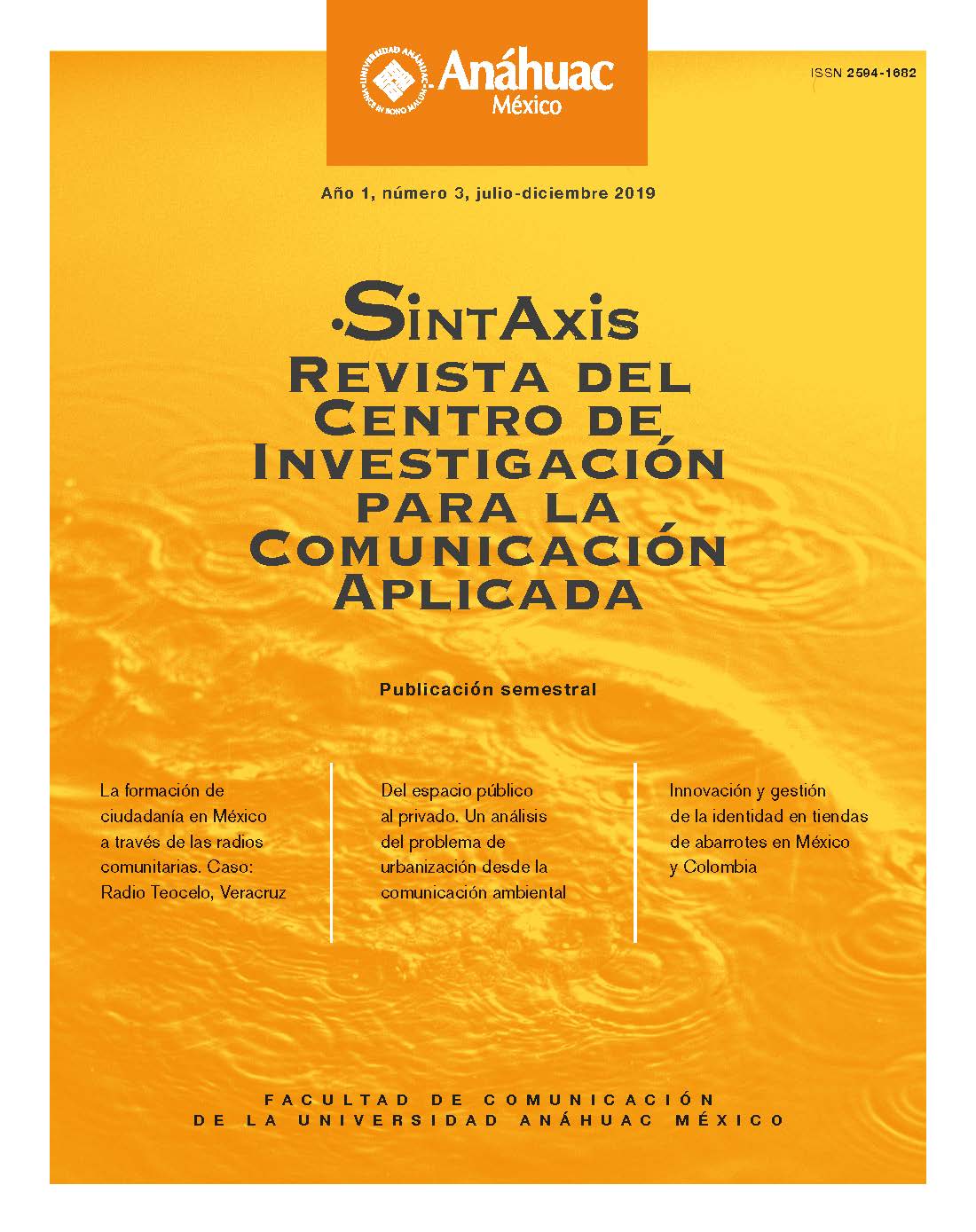The formation of citizenship in Mexico through community radios. Case: Radio Teocelo, Veracruz
Main Article Content
Abstract
This research raises how audiences have modified their media consumption, transforming such dynamics into a process that requires participatory citizens, who access the public space through the media to be part of collective decision-making to participate in the exercise power. In this sense, through this work it is proposed that other possible ways of communicating allow the reconstruction of the fractured social fabric in commercial and public communication models, making it possible to strengthen democracy in an authentic way, through media whose contents strengthen the identity, values and culture of their regions, while providing specific information of interest to their audiences, attending to a social claim in areas or regions where audiences are not part of the segmentation that interests other media models. This is how community radio stations arise and have value for their communities, in a job that must be guaranteed by the State, since it is this one that is responsible for guaranteeing its functioning in a democratic way, providing the plurality and balance necessary to facilitate the audience access to public space in order to intervene in the discussion and decision making of collective competence, through the effective exercise of citizenship.
Downloads
PLUMX Metrics
Article Details
The author keeps the property rights with no restriction whatsoever and guarantees the magazine the right to be the first publication of the work. The author is free to deposit the published version in any other medium, such as an institutional archive or on his own website.
References
Bruzzone, D. (2015). Introducción. Voces abiertas Comunicación, política y ciudadanía en América Latina. Argentina: CLACSO.
Gumucio-Dagon, A. (2011). Comunicación para el cambio social: clave del desarrollo participativo. Recuperado de http://www.redalyc.org/pdf/860/86020038002.pdf
Gutiérrez Vidrio, S. (2011). Representaciones sociales y construcción de la ciudadanía en jóvenes universitarios. Recuperado de http://www.redalyc.org/articulo.oa?id=99815920002
INEy COLMEX. (2015) Informe País sobre la calidad de la ciudadanía en México. Recuperado de http://www.ine.mx/archivos2/s/DECEYEC/EducacionCivica/Documento_Principal_23Nov.pdf
Mari Sáez, V. M. (2010). El enfoque de la comunicación participativa para el desarrollo y su puesta en práctica en los medios comunitarios. Recuperado de http://www.razonypalabra.org.mx/N/N71/VARIA/27%20MARI_REVISADO.pdf https://doi.org/10.2307/j.ctvn96f5x.8
Navarro Díaz, L. R. (2010). Una reflexión sobre los medios ciudadanos: esferas públicas, movilizadores de identidades y contraidentidades de los sujetos políticos en Colombia. https://doi.org/10.35537/10915/66125
Olvera, A. J. (2014). Ciudadanía y participación ciudadana en México. Hacia una nación de ciudadanos. México: Conaculta-FCE.
Ramos, V. M. (2007). La radio comunitaria frente a los grupos de poder. Recuperado de https://dialnet.unirioja.es/servlet/articulo?codigo=2597270
Rizo, M. (2009). Participación en Memorias del Tercer Seminario de Comunicación Indígena. Radio Teocelo. Ojo de Agua Comunicación. 13-15. Oaxaca, México. Recuperado de http://ojodeaguacomunicacion.org/joomla2014/images/archivos_pdfs/memoria_seminario_3.pdf
Rodríguez, C. (2009). De medios alternativos a medios ciudadanos: trayectoria teórica de un término. Recuperado de http://www.scielo.org.co/scielo.php?script=sci_nlinks&ref=000135&pid=S0120-4807201600010001100021&lng=es https://doi.org/10.26620/uniminuto.mediaciones.10.12.2014.76-87
Rodríguez, C. y Quijano, M. (2014). Por una comunicación pensada desde las necesidades de las comunidades. Recuperado de http://biblioteca.uniminuto.edu/ojs/index.php/med/article/view/541
Unesco. (2015). Educación para la ciudadanía mundial. Recuperado de http://unesdoc.unesco.org/images/0023/002338/233876s.pdf

